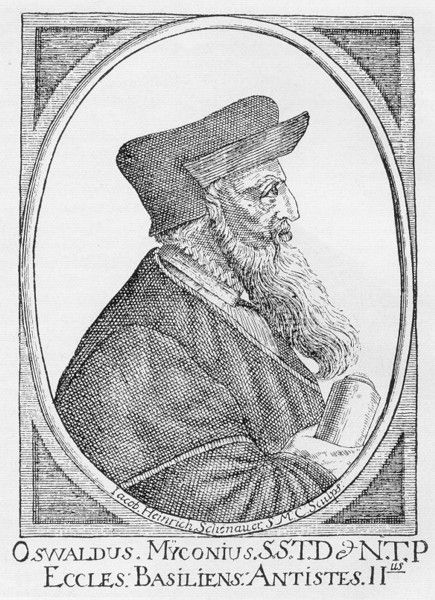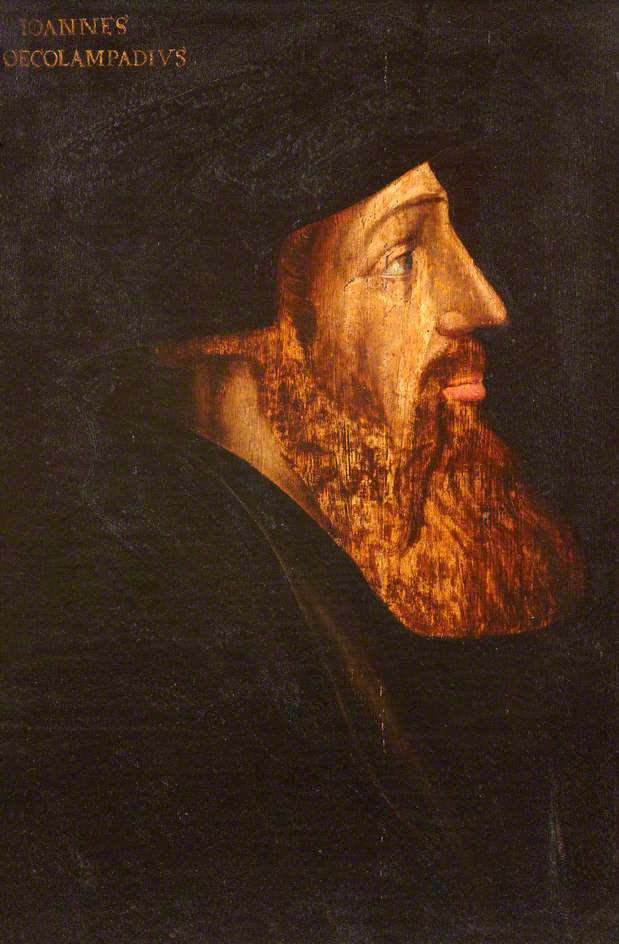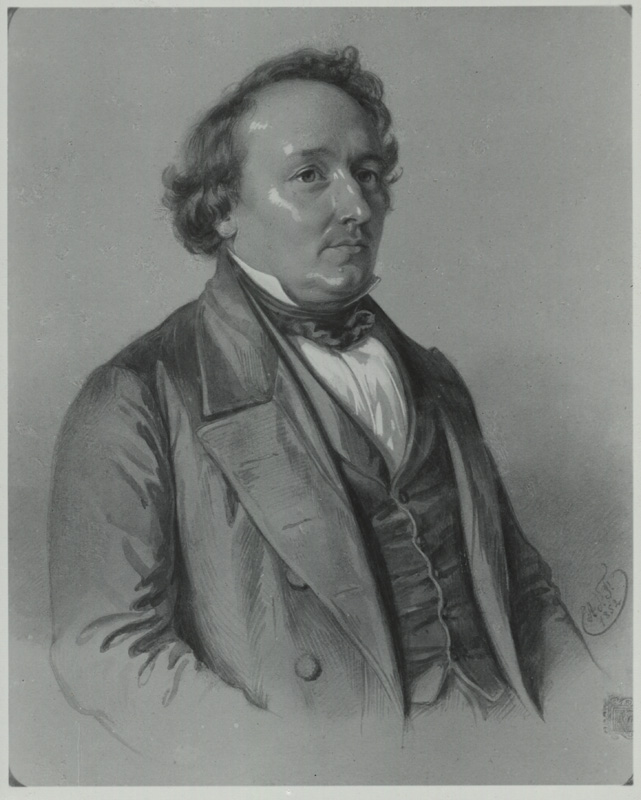|
Oswald Myconius
Oswald Myconius (1488, Lucerne – 14 October 1552, Basel) was Swiss Protestant theologian and Protestant reformer. He was a follower of Huldrych Zwingli. Life He was born at Lucerne, Switzerland. His family name was Geisshüsler, and his father was a miller; hence he was also called Molitoris (Latin ''molitor'', "miller"). The name Myconius is said to have been given him by Erasmus; it alludes to the proverbial expression ''bald-headed Myconian''."Erasmus, with his penchant for a classical pun, had nicknamed the teacher Myconius, referring to the Ancient Greek geographer Strabo’s observation that the men of Mykonos were bald." Moyle, Franny, ''The King's Painter: The Life and Times of Hans Holbein'', New York: Abrams Press, 2021, p. 58. From the school at Lucerne he went to the University of Basel to study classics. From 1514 he obtained teaching posts at Basel, where he married, and made the acquaintance of Erasmus and of Hans Holbein, the painter. In 1516 he was calle ... [...More Info...] [...Related Items...] OR: [Wikipedia] [Google] [Baidu] |
Protestants
Protestantism is a branch of Christianity that follows the theological tenets of the Protestant Reformation, a movement that began seeking to reform the Catholic Church from within in the 16th century against what its followers perceived to be growing errors, abuses, and discrepancies within it. Protestantism emphasizes the Christian believer's justification by God in faith alone (') rather than by a combination of faith with good works as in Catholicism; the teaching that salvation comes by divine grace or "unmerited favor" only ('); the priesthood of all faithful believers in the Church; and the ''sola scriptura'' ("scripture alone") that posits the Bible as the sole infallible source of authority for Christian faith and practice. Most Protestants, with the exception of Anglo-Papalism, reject the Catholic doctrine of papal supremacy, but disagree among themselves regarding the number of sacraments, the real presence of Christ in the Eucharist, and matters of ecclesiastica ... [...More Info...] [...Related Items...] OR: [Wikipedia] [Google] [Baidu] |
16th-century Swiss People
The 16th century begins with the Julian year 1501 ( MDI) and ends with either the Julian or the Gregorian year 1600 ( MDC) (depending on the reckoning used; the Gregorian calendar introduced a lapse of 10 days in October 1582). The 16th century is regarded by historians as the century which saw the rise of Western civilization and the Islamic gunpowder empires. The Renaissance in Italy and Europe saw the emergence of important artists, authors and scientists, and led to the foundation of important subjects which include accounting and political science. Copernicus proposed the heliocentric universe, which was met with strong resistance, and Tycho Brahe refuted the theory of celestial spheres through observational measurement of the 1572 appearance of a Milky Way supernova. These events directly challenged the long-held notion of an immutable universe supported by Ptolemy and Aristotle, and led to major revolutions in astronomy and science. Galileo Galilei became a champion o ... [...More Info...] [...Related Items...] OR: [Wikipedia] [Google] [Baidu] |
1552 Deaths
Year 155 ( CLV) was a common year starting on Tuesday (link will display the full calendar) of the Julian calendar. At the time, it was known as the Year of the Consulship of Severus and Rufinus (or, less frequently, year 908 ''Ab urbe condita''). The denomination 155 for this year has been used since the early medieval period, when the Anno Domini calendar era became the prevalent method in Europe for naming years. Births * Cao Cao, Chinese statesman and warlord (d. 220) * Dio Cassius, Roman historian (d. c. 235) * Tertullian, Roman Christian theologian (d. c. 240) * Sun Jian, Chinese general and warlord (d. 191) Deaths * Pius I, Roman bishop * Polycarp, bishop of Smyrna Smyrna ( ; grc, Σμύρνη, Smýrnē, or , ) was a Greek city located at a strategic point on the Aegean coast of Anatolia. Due to its advantageous port conditions, its ease of defence, and its good inland connections, Smyrna rose to promi ... (b. AD 65) References {{DEFAULTSORT:155 ... [...More Info...] [...Related Items...] OR: [Wikipedia] [Google] [Baidu] |
1488 Births
__NOTOC__ Year 1488 ( MCDLXXXVIII) was a leap year starting on Tuesday of the Julian calendar. Events January–December * January 8 – The Royal Netherlands Navy is formed, by the decree of Maximillian of Austria. * February 3 – Bartolomeu Dias of Portugal lands in Mossel Bay, after rounding the Cape of Good Hope at the tip of Africa, becoming the first known European to travel this far south, and entering the Indian Ocean. * February 28 – Choe Bu (1454–1504), the Korean Commissioner of Registers for the island of Cheju, shipwrecks on the south east coast of China in Taizhou, Zhejiang. * June 11 – Battle of Sauchieburn: James IV of Scotland becomes king after his father is killed in action. * July 12 – Joseon Dynasty official Choe Bu returned to Korea after months of shipwrecked travel in China. * July 28 – Battle of Saint-Aubin-du-Cormier: Troops loyal to King Charles VIII of France defeat rebel forces, led by the Du ... [...More Info...] [...Related Items...] OR: [Wikipedia] [Google] [Baidu] |
Ambrosius Blarer
Ambrosius Blarer (sometimes Ambrosius Blaurer; April 4, 1492 – December 6, 1564) was an influential Protestant reformer in southern Germany and north-eastern Switzerland. Early life Ambrosius Blarer was born 1492 into a leading family of Konstanz. He studied theology in Tübingen where he met Philip Melanchthon with whom he kept a lifelong friendship. After getting his master‘s degree, he entered the Benedictine monastery Alpirsbach Abbey. Through his correspondence with Philip Melanchthon and his brother Thomas Blarer, a student in Wittenberg between 1520 and 1523, Ambrosius Blarer was well informed about Luther's teachings and began spreading them himself among his brothers. This led to a conflict between him and his superiors and in 1522 Blarer fled the convent. He found refuge in his hometown; Constance was already well on the way to becoming reformed so he did not have to fear the consequences of breaking his vows. Nevertheless, he kept wearing his habit. Reformati ... [...More Info...] [...Related Items...] OR: [Wikipedia] [Google] [Baidu] |
Canton Of Basel
Basel was a canton of Switzerland that was in existence between 1501 and 1833, when it was split into the two half-cantons of Basel-City and Basel-Country. Background Before the Protestant Reformation, Basel was ruled by prince-bishops (see Bishop of Basel, whose memory is preserved in the crosier shown on the Basel coat of arms, as above). In the later 15th century, in the wake of the Council of Basel (1431–49), the city of Basel grew in wealth and importance. The University of Basel was established in 1459, and the city became an intellectual center of the German Renaissance in the years leading up to the Reformation. Erasmus of Rotterdam taught in Basel, and early printshops were set up by Johannes Petri and Johann Froben. In 1495, Basel was incorporated in the Upper Rhenish Imperial Circle, the bishop sitting on the Bench of the Ecclesiastical Princes. Establishment As a direct consequence of the Swabian War, resolved by the 1499 Treaty of Basel, Basel and ... [...More Info...] [...Related Items...] OR: [Wikipedia] [Google] [Baidu] |
Antistes
Antistes (from Latin ''ante'' "before" and ''sto'' "stand") was from the sixteenth to the nineteenth century the title of the head of a church in the Reformed Churches in Switzerland. It was the highest office in churches with synodal church governance. The word was used first in 1525 as an unofficial title of honor for Huldrych Zwingli in Zurich, then in 1530 for Johannes Oecolampadius in Basel and in 1532 for Heinrich Bullinger in Zurich. The antistes was elected by the great council (the parliament) of the city and also held besides this office a pastorship of one of the main churches. The antistes had to be an ordained minister. He was the official representative of the church. He presided over the synod, and over the theological examinations of candidates for the office of pastor. His direct rights were very limited, but a man with high leadership capabilities like Zwingli or Bullinger could exert a great influence on the church in this office. In the late nineteenth c ... [...More Info...] [...Related Items...] OR: [Wikipedia] [Google] [Baidu] |
Johannes Oecolampadius
Johannes Oecolampadius (also ''Œcolampadius'', in German also Oekolampadius, Oekolampad; 1482 – 24 November 1531) was a German Protestant reformer in the Calvinist tradition from the Electoral Palatinate. He was the leader of the Protestant faction in the Baden Disputation of 1526, and he was one of the founders of Protestant theology, engaging in disputes with Erasmus, Zwingli, Luther and Martin Bucer. Calvin adopted his view on the Eucharist dispute ( against Luther). His German surname was ''Hussgen'' (or ''Heussgen'', ''Huszgen''), which he etymologized to ''Hausschein'' ("house-shine") and graecized (as was the custom at the time) to Οἰκολαμπάδιος in all capital letters, without Greek diacritics, as may be seen in , quoting a verse of Johannes Rhellicanus. In modern times, his name has been published in lowercase using polytonic diacritics, viz. ( grc-gre, Οἰκολαμπάδιος) in ''katharevousa'' publications associated with the Greek Orthodox C ... [...More Info...] [...Related Items...] OR: [Wikipedia] [Google] [Baidu] |
Karl Rudolf Hagenbach
Karl Rudolf Hagenbach (March 4, 1801 – June 7, 1874) was a Swiss church theologian and historian. He was particularly interested in the Protestant Reformation and its figures. Life Hagenbach was born at Basel, where his father was a practising physician, and a professor of anatomy and botany in the university. His preliminary education was at a Pestalozzian school, and afterwards at the gymnasium, whence in due course he passed to the newly reorganized local university. He early devoted himself to theological studies and the service of the church, while at the same time cherishing and developing broad "humanistic" tendencies which found expression in many ways and especially in an enthusiastic admiration for the writings of Herder. The years 1820–1823 were spent first at Bonn, where G. C. F. Lucke (1791–1855) exerted a powerful influence on his thought, and afterwards at Berlin, where Schleiermacher and Neander became his masters. Returning in 1823 to Basel, where W. M. ... [...More Info...] [...Related Items...] OR: [Wikipedia] [Google] [Baidu] |
Melchior Adam
Melchior Adam (c. 1575 – 26 December 1622) was a German Calvinist literary historian. Life Adam was born in Grottkau, Nysa, Habsburg Silesia (present-day Grodków, Opole Voivodeship). He visited the college in ''Brieg'' Brzeg, then studied on various academies with financial support of his benefactor Joachim von Berg. In 1601 he was appointed schoolmaster at the municipal school of Heidelberg, and later became co-rector and professor at the same institution. He died in Heidelberg. Works His major achievement consists of a collection of literary biographies, which were printed in Stuttgart and Heidelberg in five volumes: ''German Philosophers'' (including philologists, poets, mathematicians and physicists), ''German Theologians'', ''Foreign Theologians'', ''Jurists and Politicians'' and ''Medics''. The figures discussed were arranged chronologically by their date of death, most of which lie between 1420 and 1620. His sources were biographical texts, personal records, funer ... [...More Info...] [...Related Items...] OR: [Wikipedia] [Google] [Baidu] |
Henry Bennet (translator)
Henry Bennet ( fl. 1561), said to be of Calais, was an English translator of Protestant literature. Bennet published in 1561, at the press of John Awdelay, a volume of translations from the German and Swiss Protestant reformers, ''A Famous and Godly History''. The book is divided into two parts, which were published together. The first part was dedicated to Thomas Wentworth, 2nd Baron Wentworth, with a date of 18 November 1561. It contains Philip Melanchthon's life of Martin Luther; Luther's declaration of his doctrine before the Emperor Charles V at Worms; and the oration of Melanchthon at Wittenberg, given in place of his usual exposition of the ''Epistle to the Romans'', after the news of Luther's death. Some of this part was adapted for '' Actes and Monuments'' (1563) by John Foxe. The second part has a similar dedication to James Blount, 6th Baron Mountjoy, dated 30 November 1561. It consists of: * a life of John Œcolampadius by Wolfangus Faber Capito; * an account of t ... [...More Info...] [...Related Items...] OR: [Wikipedia] [Google] [Baidu] |







.jpg)